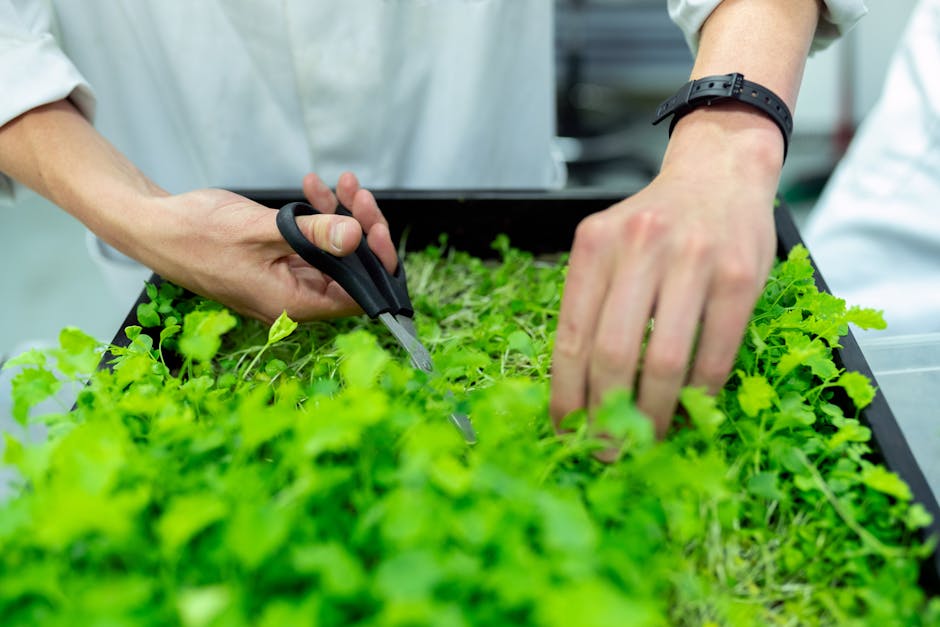Gratitude, a simple act of expressing thankfulness, plays a pivotal role in personal development. It’s like a magic potion that can transform your life, making you happier, healthier, and more fulfilled. Intrigued? Let’s dive deeper into this fascinating topic.
Key Takeaways
- Gratitude can significantly enhance your quality of life.
- It offers emotional, social, and psychological benefits.
- Practicing gratitude regularly can lead to health improvements and cognitive enhancements.
- Overcoming obstacles to gratitude can lead to personal growth and renewed perspective.
- Teaching gratitude can have a ripple effect on community well-being.
Introduction to Gratitude and Personal Development
Definition of Gratitude
Gratitude is a feeling of appreciation for what one has. It’s about focusing on the good in life and acknowledging the positive aspects. It’s a powerful emotion that can bring about a multitude of benefits.
Overview of Personal Development
Personal development involves activities that improve self-awareness, develop talents, enhance quality of life, and contribute to the realization of dreams and aspirations. It’s a lifelong process of growth and self-improvement.
Importance of Gratitude in Enhancing Quality of Life
Gratitude has a profound impact on our lives. It can improve our mental and physical health, strengthen our relationships, and even boost our career success.

What Good is Gratitude?
Emotional Benefits
Increased happiness
Gratitude can significantly increase your happiness levels. By focusing on what you’re thankful for, you can shift your attention away from negative thoughts and emotions.
Reduced depression
Studies have shown that practicing gratitude can help reduce symptoms of depression. It promotes positive thinking, which can improve your mood and overall mental health.
Social Benefits
Improved relationships
Expressing gratitude can strengthen your relationships. It shows that you value and appreciate the other person, which can deepen your connection with them.
Enhanced empathy
Gratitude can enhance your ability to empathize with others. It can make you more understanding and compassionate, improving your social interactions.

Psychological Benefits
Better self-esteem
Gratitude can boost your self-esteem. By appreciating what you have, you can feel more confident and content with yourself.
Stronger resilience
Gratitude can also increase your resilience, helping you bounce back from adversity and cope with life’s challenges.

Obstacles to Gratitude
Cultural Influences
Materialism
Our materialistic culture often focuses on what we lack, making it harder to appreciate what we already have.
Individualism
In our individualistic society, we often overlook the contributions of others to our success, which can hinder our ability to feel grateful.

Personal Challenges
Negative bias
Our brains are wired to focus on the negative, which can make it difficult to recognize the positive aspects of our lives.
Past traumas
Past traumas can make it hard to feel grateful, as they can overshadow the good in our lives.

Reaping the Benefits
Health Improvements
Lower stress levels
Practicing gratitude can lower your stress levels. It can help you relax and enjoy the present moment, reducing your anxiety and tension.
Better physical health
Gratitude can also improve your physical health. It can boost your immune system, lower your blood pressure, and improve your sleep.

Cognitive Enhancements
Improved decision making
Gratitude can enhance your decision-making skills. It can help you focus on the positive outcomes, making you more optimistic and confident in your choices.
Enhanced problem-solving skills
Gratitude can also improve your problem-solving skills. It can help you see the bigger picture and come up with creative solutions.

Emotional Stability
Greater life satisfaction
Gratitude can increase your life satisfaction. It can make you feel more content and fulfilled, enhancing your overall well-being.
Increased optimism
Gratitude can boost your optimism. It can help you maintain a positive outlook on life, even in the face of adversity.

Practice Makes Perfect
Daily Gratitude Exercises
Gratitude journaling
One effective way to practice gratitude is through journaling. Writing down what you’re thankful for each day can help you focus on the positive aspects of your life.

Gratitude meditation
Gratitude meditation is another powerful practice. It involves focusing your mind on the things you’re grateful for, promoting feelings of peace and contentment.

Long-Term Commitment
Setting regular reminders
To make gratitude a habit, it can be helpful to set regular reminders. This can ensure that you practice gratitude consistently, reaping its many benefits.
Creating gratitude rituals
Creating gratitude rituals can also be beneficial. This could involve expressing gratitude at a certain time each day, or during specific activities.

Passing the Test
Gratitude During Challenges
Coping with loss
Gratitude can be particularly beneficial during challenging times. It can help you cope with loss, by focusing on the positive memories and experiences.
Overcoming adversity
Gratitude can also help you overcome adversity. It can provide a sense of perspective, helping you see the silver lining in difficult situations.

Transformative Effects
Personal growth
Gratitude can lead to personal growth. It can help you become more self-aware, compassionate, and resilient, contributing to your personal development.
Renewed perspective
Gratitude can also provide a renewed perspective. It can help you appreciate the small things in life, enhancing your overall happiness and fulfillment.

Helping Others Find Gratitude
Teaching Gratitude
In educational settings
Gratitude can be taught in educational settings. Incorporating gratitude exercises into the curriculum can help students develop a more positive outlook on life.
Through community programs
Community programs can also promote gratitude. These programs can provide resources and support for individuals looking to cultivate gratitude in their lives.
The Ripple Effect
Impact on community well-being
Teaching gratitude can have a ripple effect on community well-being. It can foster a more positive and supportive community environment.
Strengthening social bonds
Gratitude can also strengthen social bonds. It can promote empathy and understanding, enhancing social cohesion.

Top 5 Benefits of Gratitude Practice
Enhanced Relationships
Gratitude can significantly enhance your relationships. It can deepen your connections with others, promoting mutual understanding and respect.
Improved Cognitive Functioning
Gratitude can improve your cognitive functioning. It can enhance your decision-making and problem-solving skills, boosting your mental agility.
Positive Emotional States
Gratitude can promote positive emotional states. It can increase your happiness, reduce your stress, and boost your optimism.
Self-Improvement
Gratitude can contribute to self-improvement. It can boost your self-esteem, increase your resilience, and promote personal growth.
Overall Health Benefits
Gratitude can bring about overall health benefits. It can improve your physical health, reduce your stress levels, and enhance your mental well-being.
Cardinals IN-PERSON Meeting
Event Overview
Purpose
The purpose of the Cardinals IN-PERSON Meeting is to discuss the role of gratitude in personal development. It’s an opportunity to learn more about the benefits of gratitude and how to cultivate it in your life.
Expected outcomes
The expected outcomes of the meeting include increased understanding of gratitude, practical tips for cultivating gratitude, and an opportunity to connect with like-minded individuals.
Community Engagement
Participant involvement
Participants will have the opportunity to share their experiences with gratitude, learn from others, and engage in meaningful discussions.
Sharing experiences
Sharing experiences is a key part of the meeting. It’s a chance to learn from others’ experiences with gratitude, gain new insights, and feel inspired to cultivate gratitude in your own life.
In conclusion, gratitude plays a crucial role in personal development. It can enhance your emotional, social, and psychological well-being, improve your health and cognitive functioning, and contribute to personal growth and community well-being. So why not start practicing gratitude today and reap its many benefits? Remember, it’s not just about saying thank you, but truly feeling it in your heart. And as you cultivate this powerful emotion, you’ll find that it’s not just good for you, but for those around you as well. So go ahead, express your gratitude, and watch as your life transforms in amazing ways.
Unlocking Your Potential: The Role of Gratitude in Personal Development FAQ
What is gratitude and how does it relate to personal development?
Gratitude is the quality of being thankful and showing appreciation for what one has, both materially and in terms of personal qualities or relationships. In the context of personal development, practicing gratitude can lead to a more positive outlook on life, improved mental health, and better coping strategies during difficult times. It encourages individuals to focus on the positive aspects of their lives, fostering growth and self-improvement.
Can gratitude really make a difference in my personal growth?
Absolutely. Studies have shown that individuals who practice gratitude regularly experience numerous benefits, including increased happiness, reduced depression, and a stronger sense of social support. Gratitude can shift your focus from what you lack to what you have, making challenges more manageable and enhancing your overall personal development journey.
How can I start incorporating gratitude into my daily routine?
Starting is simpler than you might think. Begin by keeping a gratitude journal, where you jot down things you’re thankful for each day. Alternatively, make it a habit to think of three things you’re grateful for each morning or night. Practicing mindfulness and being present in the moment can also help you recognize things to be grateful for throughout your day.
Does expressing gratitude to others have any benefits?
Expressing gratitude to others can significantly strengthen your relationships by making others feel valued and appreciated. It can also improve your own mood and satisfaction with your social interactions, creating a positive feedback loop that enhances your personal development and well-being.
What are some challenges people face when trying to practice gratitude?
Common challenges include forgetting to practice gratitude regularly, difficulty finding things to be grateful for during tough times, and the misconception that gratitude means ignoring real problems. Overcoming these challenges involves making gratitude a consistent habit, recognizing the small wins or blessings in life, and understanding that gratitude is not about denial but about finding a more balanced perspective on life.
Can gratitude impact my physical health?
Yes, practicing gratitude can have positive effects on your physical health. Research suggests that grateful people may experience fewer aches and pains, show better cardiovascular health, and have a greater tendency to engage in healthy behaviors such as regular exercise and attending medical check-ups.
Is there a wrong way to practice gratitude?
While gratitude is a highly personal and subjective experience, a common pitfall is practicing it in a way that feels forced or insincere. This can diminish its benefits. The key is to find genuine aspects of your life to be thankful for and to express gratitude in a way that feels true to you. Also, avoid using gratitude as a means to compare your life to others in a negative light.
How does gratitude affect mental health?
Gratitude has a profound positive impact on mental health. It can reduce symptoms of depression and anxiety by shifting attention away from negative thoughts and towards positive aspects of one’s life. Additionally, gratitude can enhance resilience, helping individuals to bounce back more quickly from stressful events and challenges.
Can practicing gratitude help with stress and anxiety?
Yes, incorporating gratitude into your life can be a powerful tool for managing stress and anxiety. It helps by changing your focus from worrying about what you cannot control to appreciating what you have. This shift in perspective can reduce the stress response and promote a sense of calm and well-being.
How long does it take to see the benefits of practicing gratitude?
The timeline can vary from person to person, but many people report feeling more positive and less stressed within a few weeks of starting a gratitude practice. The key is consistency. Making gratitude a regular part of your routine maximizes its benefits and contributes to long-term improvements in your outlook and personal development.



